However, like any vehicle, the Ford Transit is not immune to mechanical issues, and the engine is a critical component that can pose challenges for owners. In this article, we’ll explore some common problems with the Ford Transit van engine, shedding light on issues that may be encountered by both seasoned and novice owners alike.
1. Turbocharger Failures
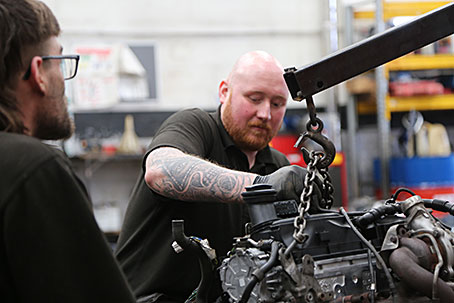
One of the more prevalent issues faced by Ford Transit owners is turbocharger failure. The turbocharger is responsible for enhancing the engine’s performance by forcing more air into the combustion chamber.
Over time, wear and tear can lead to issues such as oil leaks or a reduction in turbocharger efficiency. Symptoms include a noticeable decrease in power, increased exhaust smoke and unusual noises. Regular maintenance and addressing issues promptly can help prevent severe damage.
2. EGR Valve Problems
The Exhaust Gas Recirculation (EGR) valve is designed to reduce emissions by recirculating a portion of the exhaust gases back into the engine. However, Transit owners may encounter problems with the EGR valve, leading to issues like poor fuel efficiency, rough idling and even engine misfires. Carbon buildup is a common culprit and routine cleaning or, if necessary, replacement of the EGR valve can mitigate these problems.
3. Injector Faults
Fuel injectors play a crucial role in the combustion process by delivering the right amount of fuel to the engine. Over time, injectors can become clogged or malfunction, leading to a variety of issues, including poor fuel economy, rough engine performance and even stalling. Regularly using high-quality fuel and performing routine maintenance can help prevent injector problems.
4. Timing Chain Tensioner Issues
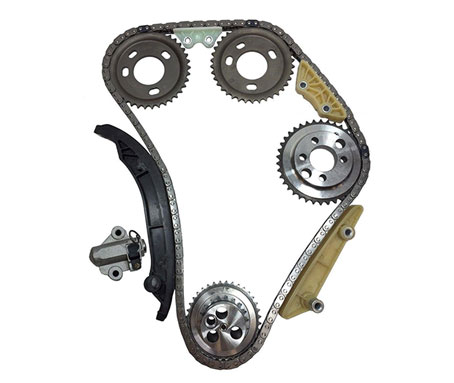
Some Ford Transit engines are equipped with timing chains rather than belts. The timing chain tensioner is responsible for maintaining the appropriate tension in the chain. If the tensioner fails, it can result in timing chain slack, leading to catastrophic engine damage.
Owners may notice unusual noises from the engine, such as rattling or knocking sounds. Timely inspection and replacement of the timing chain tensioner can prevent more significant issues.
5. Coolant Leaks
Coolant leaks can occur in various areas of the engine, including the radiator, hoses or water pump. Overheating is a common consequence of coolant leaks, and if left unaddressed, it can lead to severe engine damage. Regularly checking for coolant leaks, addressing them promptly, and ensuring proper coolant levels are maintained are essential preventive measures.
6. Faulty Mass Air Flow (MAF) Sensor
The Mass Air Flow sensor measures the amount of air entering the engine and plays a crucial role in optimising fuel injection. A malfunctioning MAF sensor can result in poor fuel efficiency, rough idling and decreased engine performance. Regularly cleaning or, if necessary, replacing the MAF sensor can help maintain optimal engine function.
7. Electrical Issues
Ford Transit vans may experience various electrical problems, ranging from issues with the alternator to problems with the battery or starter motor. Electrical issues can manifest as difficulty starting the engine, dimming lights or sporadic electrical failures. Proper maintenance of the electrical system, including regular battery checks and alternator inspections, can help prevent these problems.
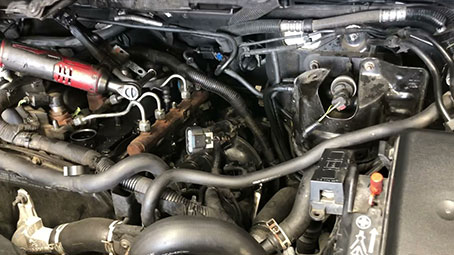
8. Glow Plug Failure
Diesel engines rely on glow plugs to preheat the combustion chamber, ensuring efficient ignition in cold temperatures. Faulty or worn-out glow plugs can cause difficult starting and rough running, especially in cold weather.
Regularly inspect and replace glow plugs as per manufacturer’s recommendations. If your Ford Transit van struggles to start in cold weather, have your mechanic check the glow plug system.
9. Rough Idle and Stalling
A rough idle and stalling can be a sign of engine instability and potential problems. Several factors can contribute to these issues:
Vacuum Leaks: Vacuum leaks in the intake system can cause erratic idle and unstable engine operation.
Throttle Body Issues: A dirty or faulty throttle body can disrupt airflow to the engine, leading to rough idle and stalling.
Ignition Coil Problems: Faulty ignition coils can cause misfires and uneven combustion, affecting engine stability.
A thorough engine inspection can identify the source of these issues. If your Ford Transit van exhibits rough idle or stalling, have it checked by a qualified mechanic to prevent further damage and ensure smooth operation.

10. Loss of Power
Losing power while driving can be a frustrating experience, especially for commercial vehicles that rely on their engine for productivity. Several factors can contribute to power loss in a Ford Transit van:
Air Filter Clogged: A clogged air filter restricts airflow to the engine, reducing power output.
Fuel Filter Clogged: A clogged fuel filter impedes fuel flow to the injectors, affecting combustion efficiency and power.
Injector Failure: Faulty or clogged injectors can cause uneven fuel delivery, leading to power loss and erratic engine performance.
Regularly check and replace air and fuel filters as per manufacturer’s recommendations. If you experience a sudden loss of power, have your Ford Transit van inspected by a mechanic to identify the cause and make necessary repairs.
11. Engine Knocking Noises
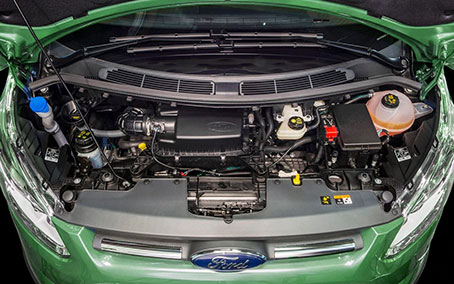
Engine knocking or pinging is a harsh, metallic sound that can be alarming. This noise is caused by detonation, which occurs when fuel ignites prematurely in the combustion chamber before the piston reaches the top of its stroke. Several factors can contribute to detonation:
Lack of Engine Oil: Insufficient engine oil can cause excessive friction between moving parts, leading to detonation.
Low Quality Fuel: Using low-quality or contaminated fuel can cause premature ignition.
Advanced Timing: An advanced engine timing can also lead to detonation.
Ensure proper engine oil levels and use high-quality fuel. If the problem persists, it’s best to consult a mechanic to check for potential timing issues or other mechanical problems.
12. Excessive Smoke Emittance
A common sight on the road is a Ford Transit van spewing black smoke from its exhaust pipe. This is typically caused by inefficient combustion, which can be attributed to several factors:
Faulty EGR Valve: The EGR valve regulates exhaust gases, recirculating them back into the engine to control emissions. A faulty EGR valve can cause incomplete combustion, leading to excessive black smoke.
Clogged Fuel Injectors: Fuel injectors are responsible for precisely metering fuel delivery, ensuring efficient combustion. Clogged injectors can result in uneven fuel distribution, leading to incomplete combustion and black smoke.
Misaligned Timing Gears: The timing gears ensure the precise synchronisation of the engine’s valves and pistons. Misaligned timing gears can cause problems with valve timing, leading to poor combustion and excessive smoke.
Regular servicing and tune-ups can help prevent these issues. If you notice excessive black smoke, it’s advisable to have your Ford Transit van checked by a qualified mechanic to identify the root cause and address it promptly.

Preventative Maintenance: Keeping Your Ford Transit Van Engine Healthy
Regular servicing and preventive maintenance are crucial for maintaining the longevity and reliability of your Ford Transit van engine. Here are some key tips:
Follow the Manufacturer’s Recommended Service Schedule: This schedule outlines the specific oil changes, fluid checks and inspections required to keep your van’s engine in top shape.
Use High-Quality Fuel and Engine Oil: Using low-quality or contaminated fuel and oil can accelerate wear and tear on engine components.
Keep Your Engine Cool: Proper cooling is essential for engine longevity. Regularly check coolant levels and ensure proper radiator function.
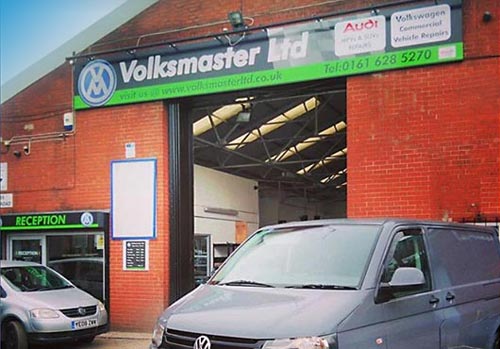
As a family-run business with over 30 years of experience in servicing and repairing vans, Volksmaster understand the unique challenges that Ford Transit owners may face. While these common engine problems can be concerning, addressing them promptly through regular maintenance and timely repairs can ensure the longevity and reliability of your Ford Transit van.
Our team is dedicated to providing expert service and support, helping you keep your trusty Transit on the road for years to come. If you’re experiencing any of the issues mentioned or need routine maintenance, don’t hesitate to contact us for professional assistance.
For van servicing in Manchester and North Manchester, Bury, Oldham, Bolton, Rochdale, Tameside etc Make a booking below now or contact us or call us on 0161 628 5270 at the Van Centre Manchester, with decades of experience our specialists are sure to service or repair your van to a high standard without breaking the bank.
